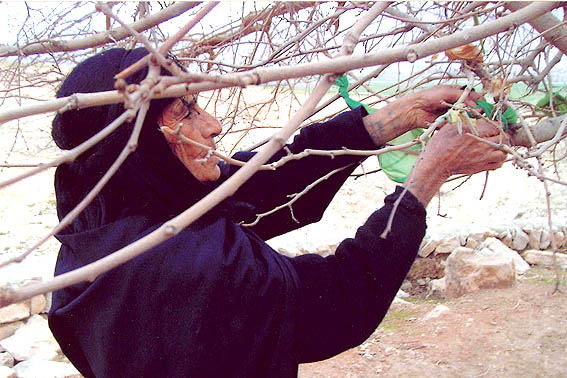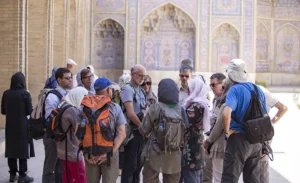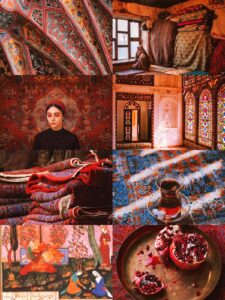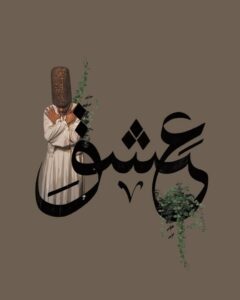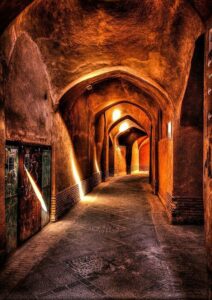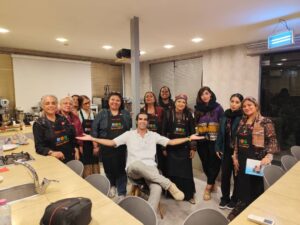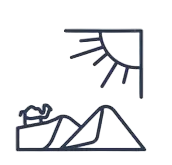The “Pirlaklak” is a title bestowed upon solitary trees by the Qashqai tribes, holding a special value and prestige among them.
Several days after the celebration of Nowruz, the tents and packs of the Qashqai tribes from the southern region of Qir and around the city of Khonj were being fastened. With the call of the elders, they embarked on their journey to seek solace from the warmth of the Qishlaq (Winter House). Heavy loads were carried by camels, while lighter burdens rested on donkeys. Men and women, along with the owners of wealth and possessions, rode on horseback, while others trailed along on donkeys and mules. The furthest point of the Qishlaq (Winter House) was three migrations away from the nearest point to the Pirlaklak gorge. Marriageable Girls and mothers caught up in vows would tie a piece of cloth to a green branch near a certain tree whose roots had dug deep into the ground over ages beside the gorge, and they would continue their journey until they reached the Yailaq (Summer House). They would spend several months in that land of pleasant weather, but those who longed for the greenery Konar within themselves whether they would attain their desires. With every knot tied around the branches of that tree, countless months of anticipation would ensue as they awaited the testing of their fate. The people of that land called such green Konar and their likes “Pirlaklak” and held them in great respect since ancient times. I wonder why the tribesmen of my ill asked their desires from that green tree? The cloths were colorful, and finding an empty spot on the branches of the tree was difficult. From afar, it resembled the bride of the tribes, taking her place on the heights of that gorge. Its height bent under the weight of heavy vows and necessities, yet its face was greener than its neighbors’. On their return from the Yailaq (Summer House), the vow-makers approached it with greetings and prayers to receive their answer. If the sign was open, they would express gratitude to their God and find solace, but if the sign was closed, they would patiently wait until…
Then, a narrow dirt road passed by the side of that tree. Days passed, seasons went by, the caravan dispersed, and the camels and horses were untied from their loads. The dirt road widened, and its surface turned black. The blades of the bulldozer took it as a sign to no longer allow roots to dig into the earth and branches to rise, so that no hearts would break.

